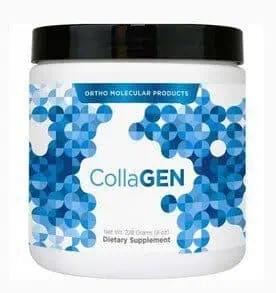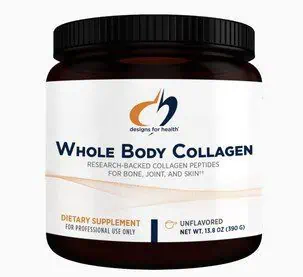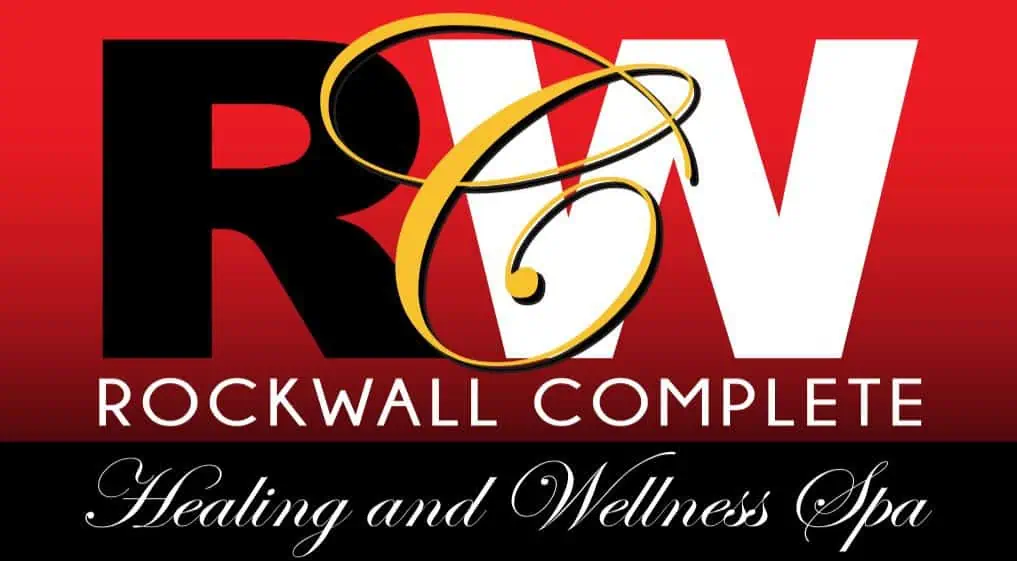
Collagen – Rockwall Wellness Spa
A reduction in collagen production becomes apparent for many individuals once they reach the age of 30. This is the point at which the skin starts to lose its elasticity, fine lines start to form, and signs of aging become noticeable. That’s why collagen is rapidly gaining popularity as one of the most sought-after supplements in the market.
One of the best ways to make sure you are getting enough collagen in you is through a high-quality, scientifically formulated collagen peptide supplement. In fact, preliminary studies suggest this can promote your health and well-being better than diet alone. A quality collagen powder can also support healthy weight management because its low in calories and high in protein.
However, with so many collagen products currently available, it can be hard to distinguish which brands can restore skin elasticity (among many other benefits) and which are just trying to take your money.

Collagen – Rockwall Wellness Spa
WHAT IS COLLAGEN?
Simply put, collagen is a protein that creates the connective tissue throughout our entire bodies. It is found in skin, nails, bones, joints, ligaments, and tendons. Collagen is primarily made up of amino acids and makes up about 70-80% of the dry weight of your skin. It is the most abundant protein in the body but as we age, the less collagen our body produces. This may lead to weaker and more brittle hair, a loss of skin elasticity, and more visible fine lines and wrinkles.
5 MAIN TYPES OF COLLAGEN:
TYPE I- This is the most abundant collagen in the human body, found in skin, bone, ligaments, and even teeth. Type 1 collagen is the primary building block of your skin, and may support skin elasticity and hydration. Bovine collagen is a common source of type 1 collage.
TYPE II- Sometimes colloquially referred to as “joint support” collagen and is found in the cartilage that supports our joints, which is why some people with joint concerns turn to type 2. Hydrolyzed chicken collagen is considered a good source of type II collagen.
TYPE III- Usually associated with type I collagen, these two types make up the two most commonly used collagen in our body. It’s highly beneficial for supporting skin health and makes up a large part of our skin and organs. Bovine collagen is also a good source of type III collagen.
TYPE V- This type of collagen helps support muscles and bones and is often sourced from eggshell membrane.
TYPE X- Like type V collagen, type X is also typically sourced from eggshell membrane- a rich source of not only collagen but essential amino acids. This type of collagen can help support bones.
WHAT DOES COLLAGEN DO:
- Promotes skin elasticity
- Helps strengthen hair and nails
- Supports bone and joints
- Muscle mass
- Gut health
- Provides essential amino acids and protein
- UV protection
- Heart health support
- Weight loss (a good source of protein helps manage food
cravings)
Not all collagen is created equally. With over 300 various collagen supplements on the market, choosing the collagen that is right for you can seem like an uphill battle. When choosing collagen always read the label, verify origins of ingredients, or research this important details before making your decision……..choose only grass-fed, pasture-raised bovine or sustainably-sourced seafood collagen…..hydrolyzed collagen peptides mean the amino acids have been broken down for easier digestion and absorption……a combination of collagen types so you’re targeting hair, skin, joints, bones, and nails…..check the label for the collagen and protein content, most quality brands also include the amino acid profile of their collagen supplement…..some off-the-shelf brands may taste bad and do not mix well.
Try to find a collagen you’ll be glad to consume every morning…and, of course, watch the sugar content of some collagen powders. Remember, collagen is a large molecule, its difficult to penetrate and absorb through skin. Taking collagen peptides as a supplement has been demonstrated to enhance skin moisture, flexibility, and collagen density in the dermis, even in facial areas.
Food-based collagen absolutely does benefit the body, too. Enhancing collagen levels in the body can be effectively achieved by prioritizing the intake of nutrients that promote collagen production and incorporating foods rich in collagen into your diet. A varied diet is important to ensure you’re getting the nutrients needed fort eh body to make collagen. Some amino acids, such as glycine, proline, and hydroxyproline, act as the foundational components for collagen, thereby aiding in the synthesis of collagen. Vitamin C and zinc play essential roles in supporting the body’s natural production of collagen, contributing to the maintenance of body structure and functions. Copper and sulfur are two minerals that aid in natural collagen production.
Foods high in collagen and collagen-boosting nutrients:
Fish- salmon, anchovies, sardines, are great choices as they’re packed with their skin, bones, and connective tissues intact.
Citrus fruit- There are fewer foods higher in Vitamin C than citrus fruits like orange, lemon, grapefruit, and limes. Vitamin C helps preserve collagen in the body and plays an important role in the body’s process to create its own collagen.
Eggs- Between proline, zinc, and sulfur found in eggs, these breakfast time favorites support collagen-building in the body. Zinc is mostly found in the yolk, proline and sulfur are largely concentrated in the whites.
Berries- Whether it be strawberries, raspberries, açaí, blueberries, cranberries, these juicy fruits are absolutely packed with collagen-building vitamin C.
Bone Broth- Bone broth stands out as one of the most widely recognized foods rich in collagen. You can make your own at home although it is a bit time consuming. There are many great options on the market, be sure to get grass-fed and pasture raised.
Beans- Numerous plant-based protein sources, such as robust legumes like beans, offer the essential amino acids required for promoting collagen production. Beyond offering an array of collagen building amino acids, many bean varieties are also fantastic sources of copper, such as pinto and white beans.
Shellfish- Shellfish, especially clams and oysters, are very effective collagen-boosters. Not only are these briny delights full of a variety of amino acids for building collagen, but they’re some of the best food sources of copper and zinc to help you reap all the benefits of collagen.
A quality collagen powder dissolves easily into your beverage of choice. Many people enjoy mixing collagen with their coffee, tea, or smoothie. The best brands make their collagen flavorless so there’s little to no impact on the taste of the beverage. If you’re concerned you lost too much collagen and want to restore your levels quickly, you may benefit from collagen loading. Simply double your collagen intake for the first 30 days so that your body can return to the baseline level of collagen production. After this level has been established, you’ll likely start feeling and seeing the difference with a single serving.
Here at Rockwall Complete we have a couple of options. Give us a call at (972) 771-8900 or stop by and ask one of our well trained employees if you have questions about our collagen.
